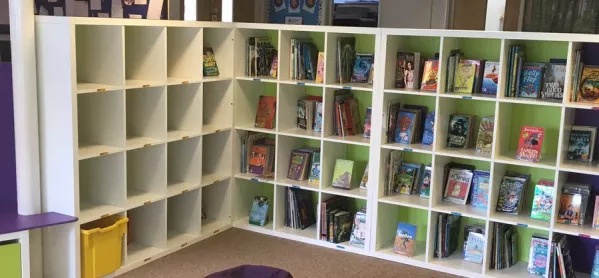- Home
- Top children’s authors demand Justine Greening step in to save school libraries
Top children’s authors demand Justine Greening step in to save school libraries

Some of Britain’s best-known children’s authors are calling on education secretary Justine Greening to personally intervene to save school libraries from further cuts, amid what campaigners claim is a “literacy crisis”.
Philip Pullman, Nick Sharratt, Francesca Simon and former Children’s Laureates Chris Riddell and Malorie Blackman are among 150 writers and literacy campaigners supporting a letter sent to Ms Greening today by the Chartered Institute of Library and Information Professionals (CILIP).
The letter, written by Dawn Finch, the institute’s immediate past president, asks Ms Greening to make an “urgent intervention to halt the decline of library provision and the numbers of qualified librarians in state-funded schools and colleges in England”.
It warns that “the UK is in the midst of a literacy crisis” and states: “Rates of teenage literacy in England are lower than those of other OECD nations. We are the only nation in the OCED in which rates of literacy for 16-24 year-olds are lower than those of people aged 55 and over.”
Cuts to libraries
School library services have “declined sharply” in recent years, according to the letter. It cites an example of a secondary school that no longer has a school librarian and where the number of books loaned to children each autumn term has fallen from 1,508 in 2014 to just 48 in 2017.
“These figures represent a 97 per cent decline in books issued to children at that school to support their learning and development” says the letter, which is backed by the Bookseller Association, National Literacy Trust and Society of Authors.
This is not because books are being replaced by technology, with the usage of e-books in schools having begun to decline in the past year, but because “children are not receiving the support and encouragement they need in order to become readers,” it adds.
CILIP is currently in talks with Ofsted that could see inspectors consider how schools and colleges access the support of a trained librarian, under the revised Common Inspection Framework from 2019.
‘Value of literacy’
But the letter adds: “The urgent need is with us now - we must act now to counter the loss of school and college libraries before we consign a generation to a lifetime of low attainment and mobility.”
Other figures who are backing the call for action include David Baddiel, Rob Biddulph, Neil Gaiman, Roger McGough and Cathy Cassidy.
Another signatory to the letter is SF Said, award-winning author of the Varjak Paw novels, who tweeted today: “Cut libraries & librarians, and you cut literacy & education. You cut the readers of the future. YOU CUT CHILDREN. #SaveLibraries”
England should follow the example set by Scotland, where deputy first minister John Swinney has signalled his intention to bring forward a National School Library for Scotland to secure the impact of school libraries on educational outcomes, according to the letter.
It says: “We now urge you to use your position as Secretary of State for Education to signal your belief in the value of literacy to learning by bringing forward a similar strategy to secure the future of England’s school and college libraries”.
‘Great risk’
The issue will be brought up during a Lords debate on Monday about the need for a strategy for life-long learning and adult re-skilling in response to the changing nature of work.
The debate is being led by shadow education spokesman Lord Watson of Invergowrie, who told Tes: “In his speech yesterday, the chancellor talked of creating an ‘advanced skills’ economy. If they lack basic reading skills, then people will be unable to gain the work skills that the economy so badly needs”.
He added: “School and college libraries help students to discover reading and to develop digital skills. As the economy braces itself for the chill winds of life outside the EU, the decline of libraries as a result of the government’s austerity cuts has put such skills development at great risk and must be reversed”.
A Department for Education spokesperson said: “Reading is a key part of a child’s education and ultimately helps them to reach their full potential. That’s why we’ve strengthened the national curriculum to focus on developing their reading and writing skills, and teaching phonics helps children acquire the basic building blocks of reading”.
They commented: “We want all children to have the opportunity to read widely - school libraries play a role in this and schools are responsible for deciding how to provide this service for their pupils. We have introduced the National Funding Formula from 2018-19, backed by £1.3bn of additional investment, which will put an end to historic funding disparities in the system and provide significant gains for under-funded schools of up to 3% per pupil in 2018-19 and a further 3% in 2019-20. We leave it up to schools to spend their funding as they see fit.”
Want to keep up with the latest education news and opinion? Follow Tes on Twitter and Instagram, and like Tes on Facebook
Keep reading for just £1 per month
You've reached your limit of free articles this month. Subscribe for £1 per month for three months and get:
- Unlimited access to all Tes magazine content
- Exclusive subscriber-only stories
- Award-winning email newsletters



